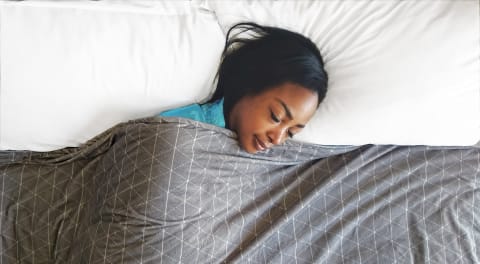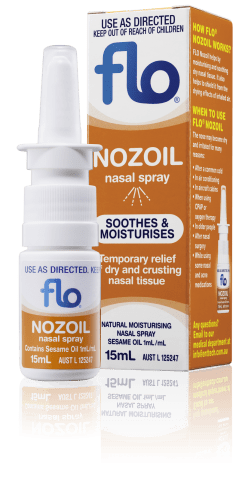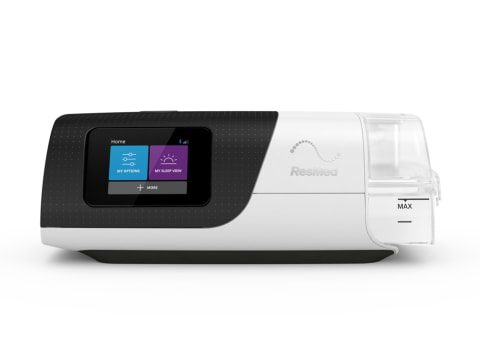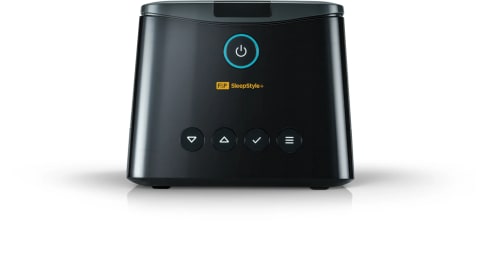What is a CPAP Device
What is a CPAP Device?
If you’re new to sleep apnea therapy or curious about how CPAP works, you might be asking: What is a CPAP device? In short, CPAP stands for Continuous Positive Airway Pressure—a medical device that delivers a steady stream of pressurised air through a mask to keep your airway open while you sleep. This consistent airflow prevents the airway from collapsing, the main cause of obstructive sleep apnea (OSA), allowing you to breathe normally and enjoy uninterrupted rest.
At Sove CPAP Clinic, we know that understanding your therapy is the key to sticking with it. That’s why we’re here to explain what a CPAP device is, how it works, the health benefits of using one, and how the right device can make all the difference. Let’s dive in!
A CPAP Device Keeps Airways Open with Pressurised Air
The primary function of a CPAP device is to deliver a continuous flow of pressurised air through a mask that fits over your nose, mouth, or both. When you sleep, the muscles in your throat naturally relax. For people with OSA, this can cause the airway to collapse, leading to repeated breathing interruptions or shallow breathing. This can cause low oxygen levels and fragmented sleep.
The CPAP device acts like a pneumatic splint for your airway, keeping it open all night long so that you can breathe freely. This helps you avoid the cycles of waking up, gasping, or snoring that so often plague sleep apnea sufferers. Popular CPAP devices like the ResMed AirSense 11 and Philips DreamStation Auto deliver this continuous flow at a pressure that’s been carefully prescribed to match your needs, determined through a sleep study or by your doctor.
Modern machines also come with features like ramp time—where the pressure starts low and gradually builds to your therapeutic level—making it easier to fall asleep comfortably. Many patients find that with a good mask fit and consistent use, CPAP therapy quickly becomes a natural part of their sleep routine.
Real-world tip: If the initial airflow feels strange, don’t worry—it’s normal to need a few nights to get used to it. Sove CPAP Clinic can adjust your machine’s settings to help make this transition as smooth as possible.
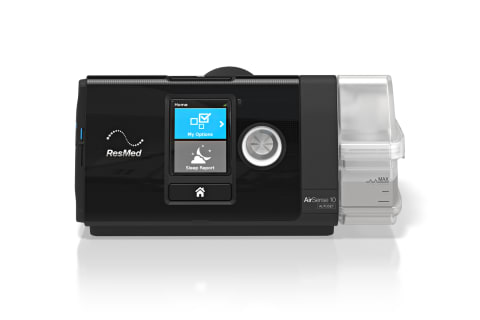 Further $50 Off with code "VALENTINES50"
ResMed AirSense 10 AutoSet 4G CPAP Machine
Further $50 Off with code "VALENTINES50"
ResMed AirSense 10 AutoSet 4G CPAP Machine
Managing Sleep Apnea Health Risks with CPAP
Obstructive sleep apnea isn’t just about poor sleep quality—it’s a serious health risk. Left untreated, it can lead to daytime fatigue, difficulty concentrating, high blood pressure, and even increase your risk of heart disease and stroke. CPAP therapy is a proven way to manage these risks by preventing airway collapse and maintaining consistent oxygen levels throughout the night.
Studies have shown that consistent CPAP use can improve daytime alertness, help lower blood pressure, and reduce the risk of cardiovascular complications. Patients often notice that they snore less (or not at all), sleep more soundly, and wake up feeling refreshed. It’s a win-win for both you and your partner, who may also appreciate the quieter nights.
Real-world tip: The key to success with CPAP therapy is consistency. Use your device every night, even if you’re travelling. Sove CPAP Clinic can help you choose travel-friendly options and provide tips to make therapy easy, no matter where you are.
A CPAP Device Can Improve Your Energy and Quality of Life
One of the most rewarding benefits of CPAP therapy is the boost in energy and overall quality of life. Before treatment, many patients report struggling with chronic fatigue, morning headaches, irritability, and even depression—all caused by disrupted sleep and low oxygen levels. After starting CPAP therapy, many people find that they sleep deeper and longer, with fewer interruptions.
Over time, this translates to better concentration, improved mood, and a renewed ability to enjoy daily activities. You may also notice improvements in other health conditions—like better control of blood pressure or diabetes—since quality sleep supports overall health and healing.
Real-world tip: Remember, it might take a few weeks to feel the full benefits of CPAP therapy, especially if your sleep debt was high. Be patient with yourself, and reach out to the team at Sove CPAP Clinic if you have questions or need help troubleshooting.
Different CPAP Models Suit Different Patient Needs
CPAP devices aren’t one-size-fits-all. There are different models designed to suit varying patient needs and lifestyles. The most common is the fixed-pressure CPAP, which delivers a constant airflow at a single pressure level. This is ideal for people whose sleep studies show a consistent need for pressure.
However, some people experience varying pressure needs throughout the night due to changes in sleep position or sleep stage. For them, an auto-adjusting CPAP (APAP), like the ResMed AirSense 10 AutoSet or Philips DreamStation Auto, may be a better choice. These devices automatically adjust the pressure up or down based on your breathing patterns.
Other features to consider include heated humidifiers (to reduce dryness), exhalation pressure relief (to make breathing out easier), and travel-friendly models like the ResMed AirMini, which are designed to be lightweight and portable.
Real-world tip: Not sure which device is best for you? At Sove CPAP Clinic, our team offers in-person fittings and trials to help you find the right match. We can also help you adjust your settings for maximum comfort.
CPAP Therapy Improves Sleep Health
The most important part of CPAP therapy isn’t just knowing how it works—it’s using it consistently. While it can take a few days or weeks to get used to sleeping with a CPAP machine, the long-term benefits are significant and well worth the adjustment.
The key to success is forming a routine. Most users find that after a few nights, they can’t imagine sleeping without their CPAP. For some, the change is immediate; for others, it’s gradual but powerful.
ALWAYS FOLLOW THE DIRECTIONS FOR USE. CPAP is used for Obstructive Sleep Apnoea treatment. When considering whether a sleep study or CPAP is right for you, speak to your doctor. Medicare criteria and T&Cs apply.
Frequently Asked Questions
Is a CPAP device the same as an oxygen machine?
No, they’re different. A CPAP device delivers a steady flow of room air at a set pressure to keep your airway open during sleep. It doesn’t add extra oxygen; its goal is to prevent airway collapse. An oxygen machine (or concentrator), on the other hand, delivers supplemental oxygen for people who have low blood oxygen levels. Some patients may use both therapies, but they serve different purposes. If you’re not sure which therapy you need, talk to your doctor or one of the sleep specialists at Sove CPAP Clinic.
How does a CPAP device differ from a BiPAP device?
A CPAP device provides a constant pressure to keep your airway open, while a BiPAP device (Bilevel Positive Airway Pressure) provides two levels of pressure: a higher one for inhalation and a lower one for exhalation. This makes exhaling easier for patients who struggle with continuous pressure, or for those with certain respiratory conditions like COPD. Your sleep doctor can help you decide which option is best for you.
What are the differences between fixed and adjustable CPAP devices?
A fixed CPAP device delivers one set pressure all night long, prescribed after your sleep study. An auto-adjusting CPAP (APAP) adjusts its pressure automatically based on your breathing patterns, increasing pressure when it senses airway collapse and decreasing it during normal breathing. This can be more comfortable for some people, especially those whose pressure needs change during the night. Both types are effective, but your comfort and preference are important in deciding which is right for you.
How quickly will I notice changes after using a CPAP device?
Many people start to feel better within the first few days of using a CPAP device. You might notice improved alertness, less daytime sleepiness, and better concentration. For others, it may take a few weeks to fully adjust to therapy and experience all the benefits. The key is to use your CPAP every night, even if you feel like skipping it. Regular use is what allows your body to recover from sleep deprivation and reap the benefits.
Does a CPAP machine stop snoring?
Yes, in most cases. Since snoring is often caused by a partially collapsed airway, the continuous airflow from a CPAP device keeps the airway open and helps eliminate or greatly reduce snoring. This is a big win for both you and your partner! However, if you still notice occasional snoring, it might be due to a mask leak or the need for a slight pressure adjustment. Sove CPAP Clinic can help you troubleshoot these issues to make sure your therapy is working effectively.
Can I travel with my CPAP device?
Absolutely! Many modern CPAP devices are designed to be travel-friendly. Models like the ResMed AirMini are small, lightweight, and perfect for taking on trips. Most devices also work with universal power supplies and can be used on airlines with the right adapter. Always check with your airline before flying. At Sove CPAP Clinic, we can help you prepare your device for travel, recommend travel cases, and provide tips to ensure you stay compliant with therapy no matter where you are.




